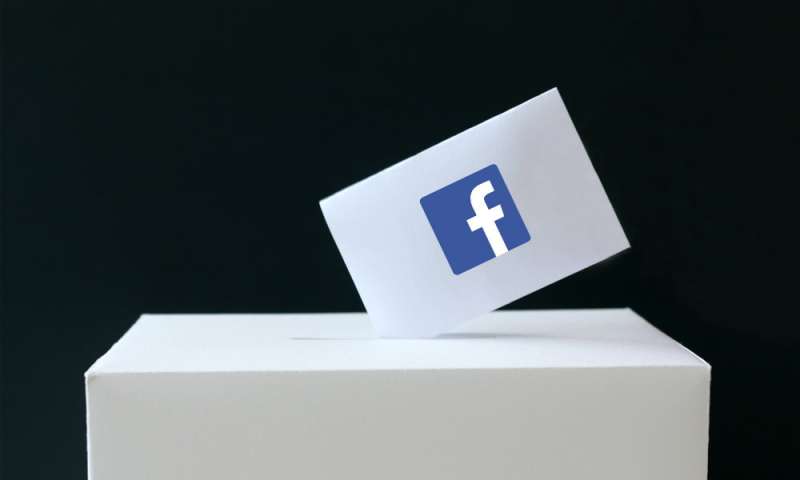Study analyzes the impact of targeted Facebook advertising on U.S. elections

Republican Donald Trump's team spent $44 million on Facebook, running 175,000 different adverts during the 2016 election campaign, compared to a spend of $28 million by Democrat Hillary Clinton.
These campaigns target Facebook users based on factors such as gender, location or political allegiance. This micro-targeted advertising on social media was highly effective in persuading undecided voters to support Trump, as well as in convincing Republican supporters to turn out on polling day.
In particular, it increased the probability that a non-aligned voter would decide to vote for candidate Trump by at least five percentage points, according to the results of the study. On the other hand, "the results show that Clinton did not manage to increase support among her potential natural voters nor boost their participation in the elections. Unfortunately, we do not have the necessary data to be able to understand why it worked for Trump and not for Clinton," the authors of the paper point out. This disparity shows there are other variables to consider in addition to the use of social media.
In Trump's case, the impact of the campaign was strongest among voters who used Facebook regularly, those who used it as their main source of news, and among voters without university or college-level education. Specifically, political micro-targeting was particularly effective when based on ideology, gender or educational level, much less so when based on race or age.
"Our results show that learning about politics on Facebook does not make voters more informed, but does make them less likely to change their voting choice, which is very in line with the concept of political polarisation. This effect is particularly visible among men, Republican voters and people with a low level of education," confirms one of the authors of the paper, Federica Libernini, from the ETH Zurich department of Economy, Technology and Business Management.
According to the authors, the paper contributes to an incipient body of literature that is using Facebook data in a completely privacy-preserving manner. The platform represents a novel and highly valuable data source to address important socio-economic questions. "Thanks to predictive analytics, companies like Facebook offer a toolkit for targeting voters at an extremely granular level based on their previous online behaviour. These online campaign channels are potentially very powerful political instruments. It is therefore vital that we understand how political campaigns on social media work, their impact on voter behaviour, and, ultimately, on election results," saysco-author Michela Redoano, associate professor at the University of Warwick Department of Economics.
Antonio Russo, another of the researchers from this multidisciplinary team, points out that Facebook's impact on turnout "suggests that social media has great potential for stimulating the political participation of people who would otherwise have lost interest in politics. In a world where confidence in democracy is dwindling, I believe this is good news. However, we still have much to learn about whether the information that voters are exposed to on social media really helps them make informed choices."
This research project used mainly two sources of data: First, the cost of displaying advertising on the platform according to the different demographic factors and political alignment (conservative, liberal or moderate) of the targeted users of an advertising campaign. Second, the results from election interviews carried out by the American National Election Studies (ANES) on 2414 voters who were interviewed before and after the 2016 North American presidential elections. In this case, they were asked about their political ideology, gender, educational level, age and other data, as well as who they were voting for at both points in time. In addition, they were asked about their use of Facebook in order to find out if they were exposed to the electoral adverts. This data was then crossed-referenced and the results were analysed.
Provided by Carlos III University of Madrid




















